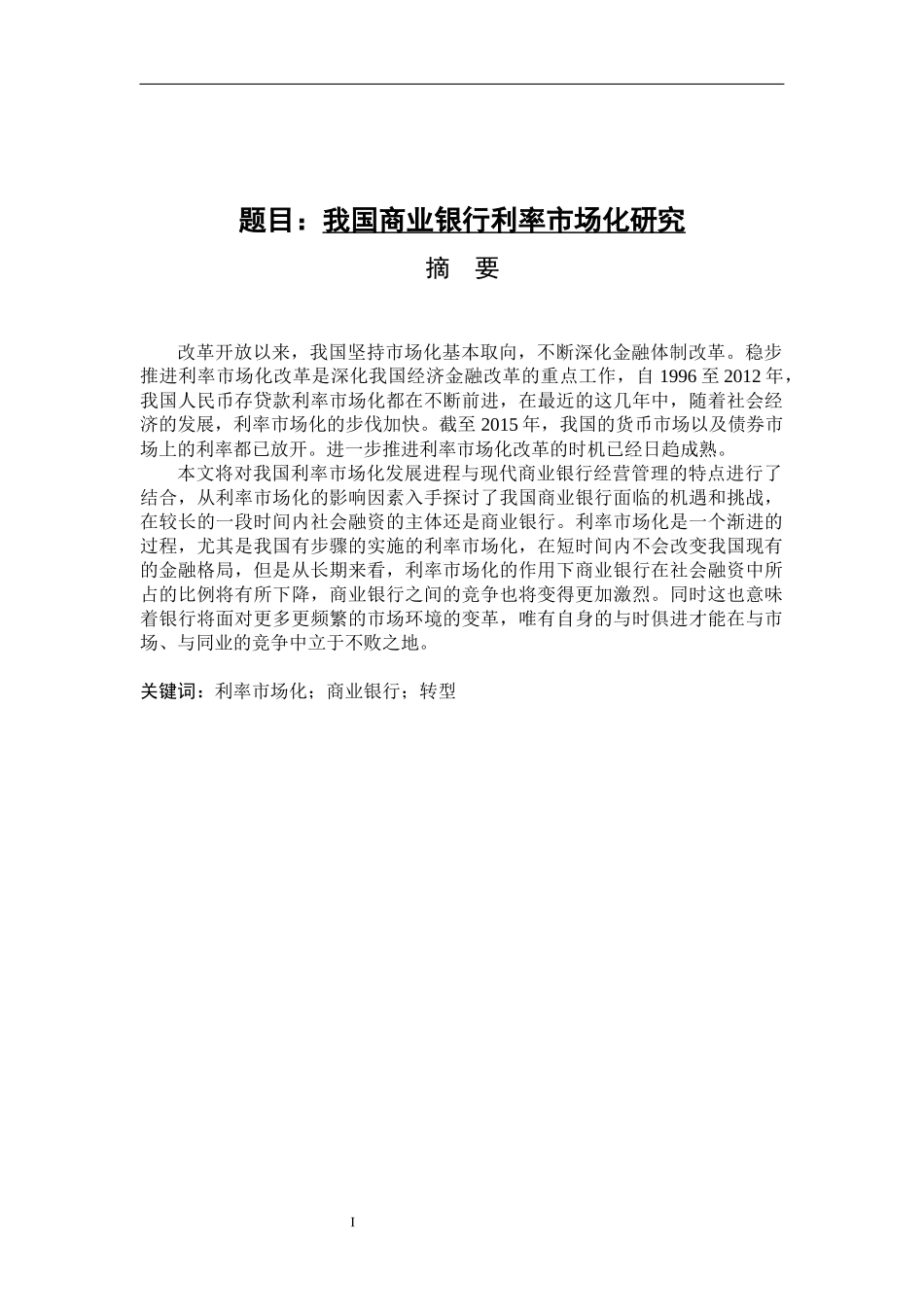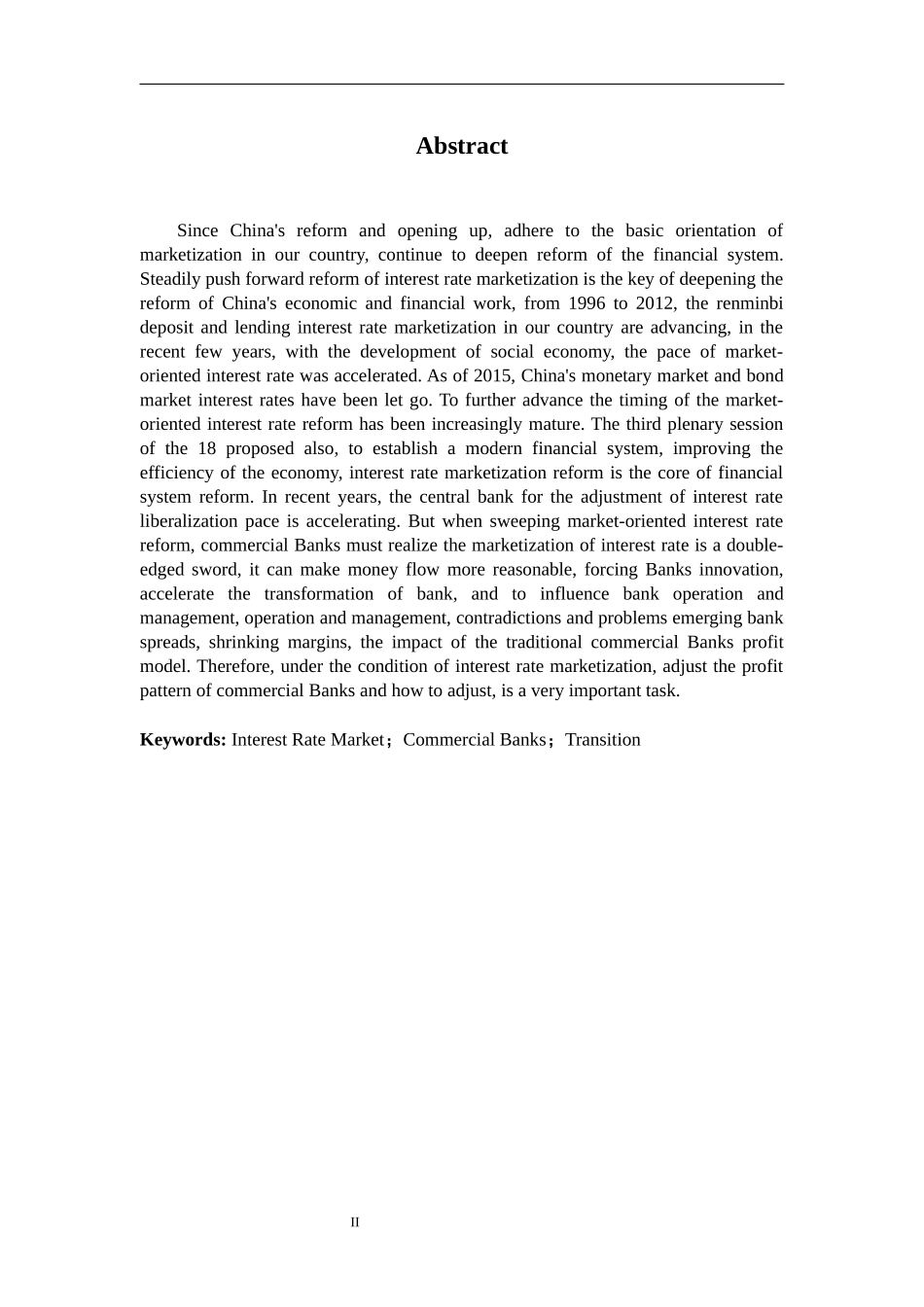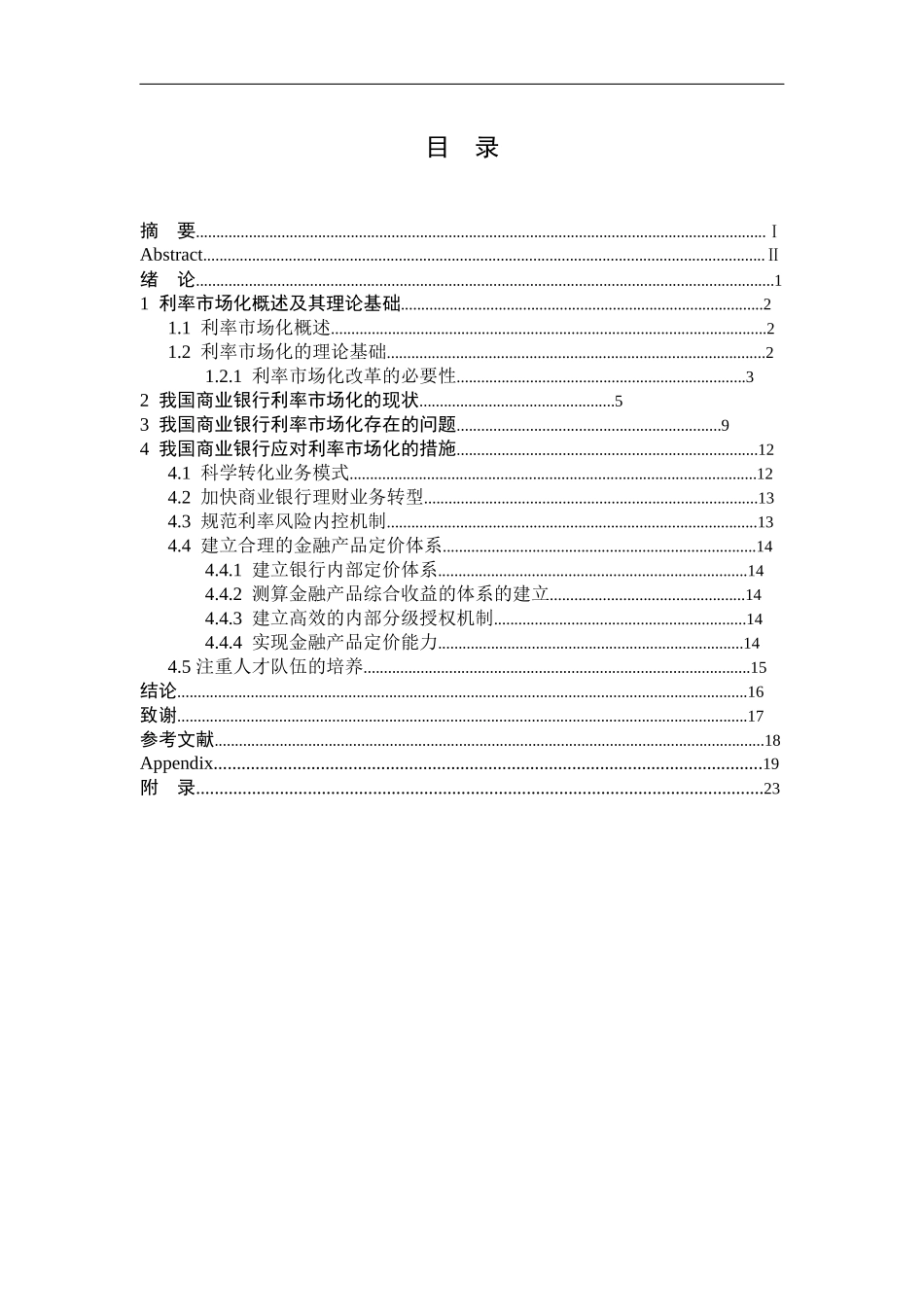I题目:我国商业银行利率市场化研究摘 要改革开放以来,我国坚持市场化基本取向,不断深化金融体制改革。稳步推进利率市场化改革是深化我国经济金融改革的重点工作,自 1996 至 2012 年,我国人民币存贷款利率市场化都在不断前进,在最近的这几年中,随着社会经济的发展,利率市场化的步伐加快。截至 2015 年,我国的货币市场以及债券市场上的利率都已放开。进一步推进利率市场化改革的时机已经日趋成熟。本文将对我国利率市场化发展进程与现代商业银行经营管理的特点进行了结合,从利率市场化的影响因素入手探讨了我国商业银行面临的机遇和挑战,在较长的一段时间内社会融资的主体还是商业银行。利率市场化是一个渐进的过程,尤其是我国有步骤的实施的利率市场化,在短时间内不会改变我国现有的金融格局,但是从长期来看,利率市场化的作用下商业银行在社会融资中所占的比例将有所下降,商业银行之间的竞争也将变得更加激烈。同时这也意味着银行将面对更多更频繁的市场环境的变革,唯有自身的与时俱进才能在与市场、与同业的竞争中立于不败之地。关键词:利率市场化;商业银行;转型IIIAbstractSince China's reform and opening up, adhere to the basic orientation of marketization in our country, continue to deepen reform of the financial system. Steadily push forward reform of interest rate marketization is the key of deepening the reform of China's economic and financial work, from 1996 to 2012, the renminbi deposit and lending interest rate marketization in our country are advancing, in the recent few years, with the development of social economy, the pace of market-oriented interest rate was accelerated. As of 2015, China's monetary market and bond market interest rates have been let go. To further advance the timing of the market-oriented interest rate reform has been increasingly mature. The third plenary session of the 18 proposed also, to establish a modern financial system, improving the efficiency of the economy, interest rate marketization reform is the core of financial system reform. In ...












